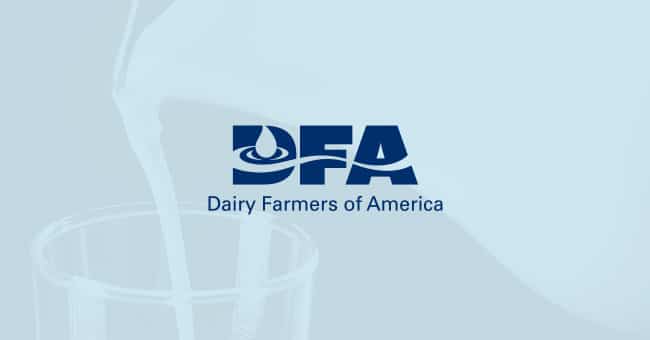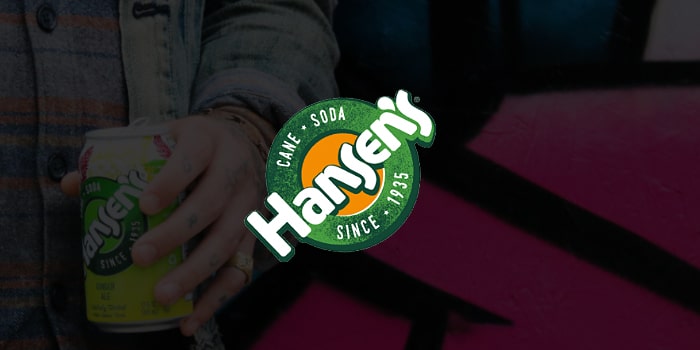Defy Claims Trademark Infringement Against Defiance Fuel Slogan
Colorado-based CBD drink maker Defy LLC filed a lawsuit last month against Tennessee-based hydration beverage brand Defiance Fuel, claiming the latter company infringed on its trademarks with its slogan “Defy Limitations.”
According to a lawsuit filed in the United States District Court for the District of Colorado, three trademarks owned by IP Holding Mark Co LLC and used by Defy LLC — including two claims on the word “Defy” for non-alcoholic beverages and supplements lines as well as the slogan “Defy for the Active Social Lifestyle” — have varyingly been in use as far back as 2009 and as late as 2013 through the brand’s predecessor in interest and predate the introduction of Defiance Fuel’s slogan in 2014.
Created in 2018, with former NFL running back Terrell Davis a member of the founding team, Defy launched last year with a three-SKU line of CBD-infused sports hydration beverages.
In a statement to BevNET, Defy wrote that it “initiated this legal action against the defendant to protect its trademark rights and to mitigate any potential consumer confusion in the marketplace. We look forward to an expeditious and favorable resolution to this matter.”
In May 2019, Defiance Fuel filed a petition to cancel Defy LLC’s three trademarks, claiming that their prior owner, Consumer Health Brands, Inc., had abandoned them after multiple years of non-use. According to filings with the United States Trademark Trial and Appeal Board, IP Holding Mark Co had also filed a petition in September 2018 to cancel Consumer Health Brands’ trademarks, but withdrew the petition that November citing a settlement between the two companies.
Greg Parker, attorney for Defiance Fuel, told BevNET that he believed the lawsuit was “moot” as the brand had begun phasing out the use of its “Defy Limitations” slogan earlier this year, prior to the lawsuit, in favor of new slogan “Hydration for the Fittest.” He said the decision was made as part of a broader rebranding effort and was unrelated to Defy LLC. The company is preparing to launch a new website featuring updated packaging this year.
“Defiance Brands firmly believes the trademark infringement claims are baseless and the lawsuit filed by IP Mark Holding will be dismissed,” Parker said.
Lawsuit Accuses Dairy Farmers of America of “Cartel” Tactics
Having completed its $433 million acquisition of bankrupt dairy producer Dean Foods earlier this year, a new lawsuit against 75 members of Dairy Farmers of America’s (DFA) leadership team is accusing the co-op of extortion and cartel-like tactics.
Filed in the U.S. District Court for the Northern District of New York by attorney Joshua Haar, the suit alleges DFA repeatedly violated the Racketeer-Influenced and Corrupt Organizations Act, including claims that DFA pressured dairy farmers to support the co-op in a 2016 antitrust lawsuit by threatening to cut off access to processing plants, obtaining a controlling share of the national milk supply and charging above-market prices on raw milk in order to put financial strain on Dean Foods.
Among the plaintiffs in the suit are multiple dairy farmers, both named and anonymous, as well as Dean Foods shareholder Susan Poole. The suit calls for DFA to be dissolved with all equity returned to its member farms.
“At this critical moment for public nutrition, the dairy supply chain created by the Defendants’ illegal conduct is failing both the farmers and the consumers,” the suit states. “Defendants’ solution to the failed U.S. milk system presents the ultimate extortion: either the federal government subsidizes the production and sale of the cartel’s product, or the cartel oversees the collapse of the centralized U.S. consumer dairy supply chain.”
In a statement sent to the press, DFA EVP and chief of staff Monica Massey called the suit “ridiculous and without merit” and accused Haar of having a “personal agenda.”
“It is unfortunate that farmer time and money must now be spent defending claims made by someone with an agenda to try to dismantle the Cooperative,” Massey wrote. “We are proud of our dedicated farmer leaders and staff who work hard every day to bring value to DFA’s family farm-owners across the country. We will vigorously defend them in this lawsuit.”
Haar did not immediately respond to requests for comment from BevNET.
Hansen Family Awarded $17 Million Settlement in Coca-Cola/Monster Suit
Fifteen children and grandchildren of late Hansen’s Beverage Co. founder Hubert Hansen were awarded $9.6 million in damages, plus an additional $7.4 million in legal fees, by the San Diego Super Court last month in a ruling against The Coca-Cola Company and Monster Beverage Company.
The ruling offers a potential conclusion to a lawsuit which was filed in 2016 and went to trial in November, however Coke and Monster could still appeal the decision. The case concerned the right of publicity to the name and likeness of Hubert Hansen, who died in 1951, with the family trust arguing that although Coke owns Hansen’s Beverage Co., it never acquired the likeness rights due to a lengthy corporate history involving numerous sales and acquisitions over the past 50 years.
According to the Hansen family, Hubert Hansen founded a small juice brand, Hansen’s Naturals, in the 1930s. In the 1970s, Hansen’s grandson Timothy Hansen created a separate offshoot company, Hansen’s Foods, which launched a line of CSDs. That company eventually went bankrupt and was later acquired by California CoPackers, which then sold the brand in 1992 to current Monster CEO Rodney Sacks and president Hilton Schlosberg who used the name Hansen’s to launch Monster Energy. In 2012 the company changed its name to Monster Beverage Corporation and in 2015, Coke acquired all non-energy beverages from Monster, including Hubert’s Lemonade.
“Monster and Coke created a beverage, Hubert’s Lemonade, using the name and life story of Hubert Hansen, the grandfather of the plaintiffs,” Neville Johnson, attorney for the Hansen family trust, wrote in a June 24 Facebook post. “Because these companies did not have permission, our clients were entitled to be compensated.”
Pepsi Bottler Claims Rockstar Contract Improperly Terminated After Pressure Over Online Pricing
Admiral Beverage Corp. filed suit on Monday against PepsiCo in Wyoming federal court, accusing the soda giant of pressuring it to give up its exclusive manufacturing and distribution agreement for Rockstar Energy products, and then retaliating by improperly terminating its contract when the bottler refused.
According to the complaint, declining sales for Pepsi’s branded soft drinks over the last five years have served as the impetus for the company to cut costs. As a result, Pepsi allegedly pressured Admiral, an affiliate for over 70 years, to end the exclusivity agreement as part of a larger strategy to terminate similar agreements with other bottlers and establish uniform national pricing.
“Overtaken by Coca-Cola in the market for carbonated soft drink beverages, PepsiCo has scrambled to cut costs and boost profits amid sluggish soda sales and dissatisfied shareholders,” the complaint stated.
It continued: “Under mounting pressure to recapture market share, PepsiCo now seeks to undermine and eliminate Admiral Beverage and the Pepsi-Cola bottlers’ clear exclusivity rights under the EBAs as part of a coordinated strategy to establish uniform national pricing and to take control of the route-to-market system.”
Admiral is accusing Pepsi of violating its duty of good faith and fair dealing by exerting pressure to end the deal, and is seeking injunctive relief to protect the contract, scheduled to end August 20.
Though the fight is over store distribution, the point of contention between the two parties is in e-commerce. According to the complaint, Pepsi asked its affiliate bottlers in April to sign a “E-Commerce Master Alliance Agreement” that would allow the soda company to sell its brand to online retailers and importantly to allow those retailers to set their own prices and sell directly to consumers within each bottlers’ respective territory.
Admiral declined to sign the agreement, and subsequently Pepsi ended its exclusive Rockstar distribution deal, the complaint stated.
Pepsi began distributing Rockstar Energy products in 2009 after signing a ten-year contract with the Las Vegas-based brand. The soda maker acquired Rockstar in March in a $3.2 billion deal that also allowed Pepsi to work with other energy brands; one month later, it signed a nationwide distribution pact with Bang Energy.



